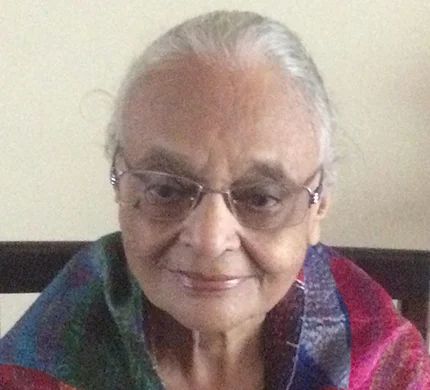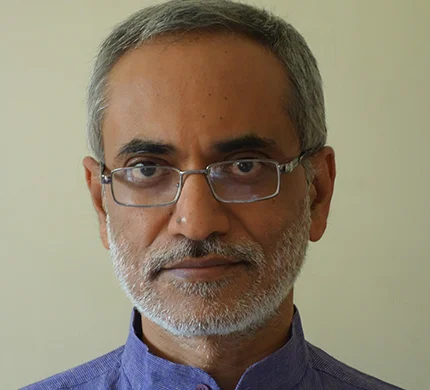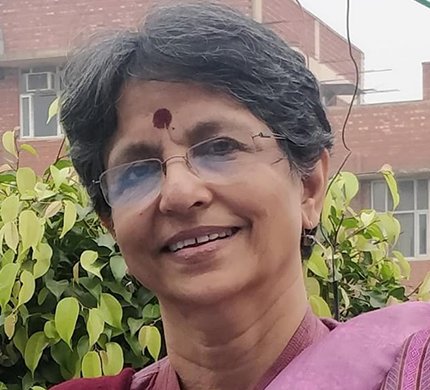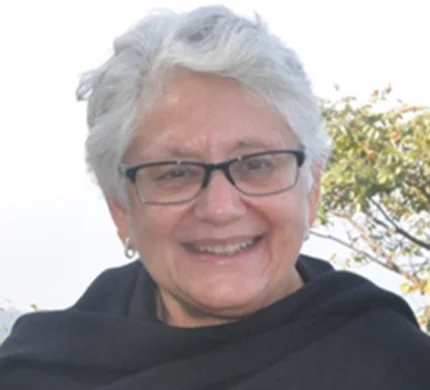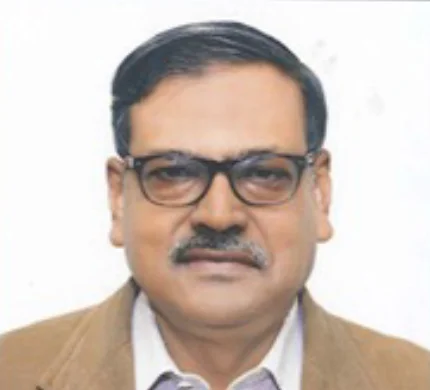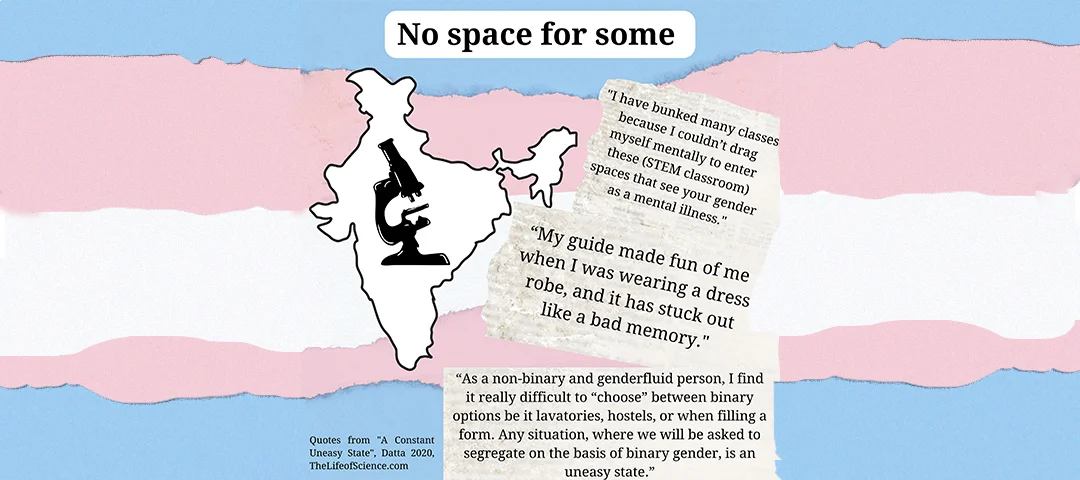
In recent years, the Indian education landscape in general and the science education landscape in particular have started engaging critically with questions of how people coming from marginalized backgrounds navigate and access educational spaces. In these conversations, the rights of transgender persons to affirmative education have been recognized by the National Education Policy (NEP) 2020, and the draft Science, Technology and Innovation Policy (STIP) 2020 among many other documents. However, despite these conversations, judgements and policies, Indian science institutions remain abysmally inaccessible to transgender persons. In this regard, this research aims to investigate the problems faced by transgender and non-binary persons in accessing science institutions, their perspective of the aforementioned policies, status of implementation of those policies and institutional change in science institutions that would make the journey of transgender and non-binary persons in science more equitable. The study proposes to use a combination of applications under Right to Information Act (RTI act) 2005, qualitative interviews and focussed group discussions with transgender persons within the science ecosystem in India, and analysis of pre-existing policies. The results will be published as journalistic reports, along with a zine to disseminate the findings and a policy brief.
Key Words: Science Education, Transgender and Non-binary Persons, Access, Policy, Right to Information
Key Themes:
Non-binary Identities, Systemic Alienation
Project Site:
Bengaluru, Delhi, Chennai, Kolkata, Hyderabad and Mumbai
Principal Investigator:
Sayantan Datta
Publications:

